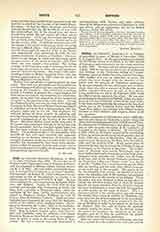

Gog and Magog. —Names, respectively, of a king and of his supposed kin dom, mentioned several times in chapters xxxvii and xxxix of the Book of Ezechiel, and once in the Apocalypse (xx, 7). the first passage of Ezechiel we read the command of Yahweh to the prophet: “Son of man, set thy face against Gog the land of Magog and prophesy of him…. Behold, I come against thee, O Gog, the chief prince of [RAS, Vulg. caput, Sept. Ros] Mosoch and Thubal” (xxxviii, 2, 3). A similar command is found also at the beginning of chapter xxxix. These two chapters contain repeated reference to Gog and Magog, but they furnish only vague and uncertain indications as to the identity of the ruler or the location of the country. In chapter xxxviii Gog is represented (verses 5 and 6) as being accompanied in his Invasion of the land of Israel by the Persians, Ethiopians, and Libyans, Gomer, and … the house of Thogorma; and in verse 15 we read: “And thou shalt come out of thy place from the northern parts”. From the number and variety of the peoples mentioned in this connection some writers have inferred that the name Gog may be only a generic appellation, or figure, used in Ezechiel to designate the host of the enemies of Israel, and in the Apocalypse to denote the multitude of the foes of the Church. Others conjecture that it may be a local title expressing the royal dignity, such, for instance, as the name Pharaoh in Egypt. But it seems more probable that both names are historical; and by some scholars Gog is identified with the Lydian king called by the Greeks Gyges, who appears as Gu-gu on the Assyrian inscriptions. If this be true, Magog should be identified with Lydia. On the other hand, as Mosoch and Thubal were nations belonging to Asia Minor, it would seem from the text of Ezechiel that Magog must be in that part of the world. Finally, others with Josephus identify Magog with Scythia, but in antiquity this name was used to designate vaguely any northern population.
JAMES F. DRISCOLL

